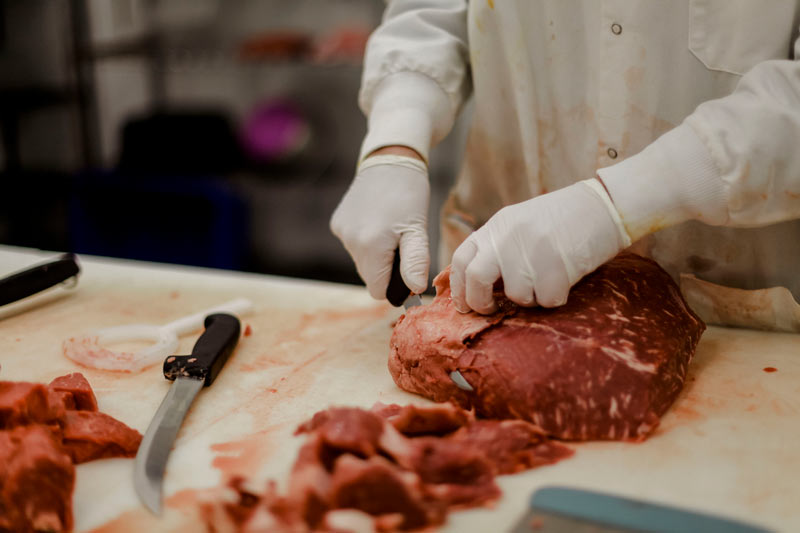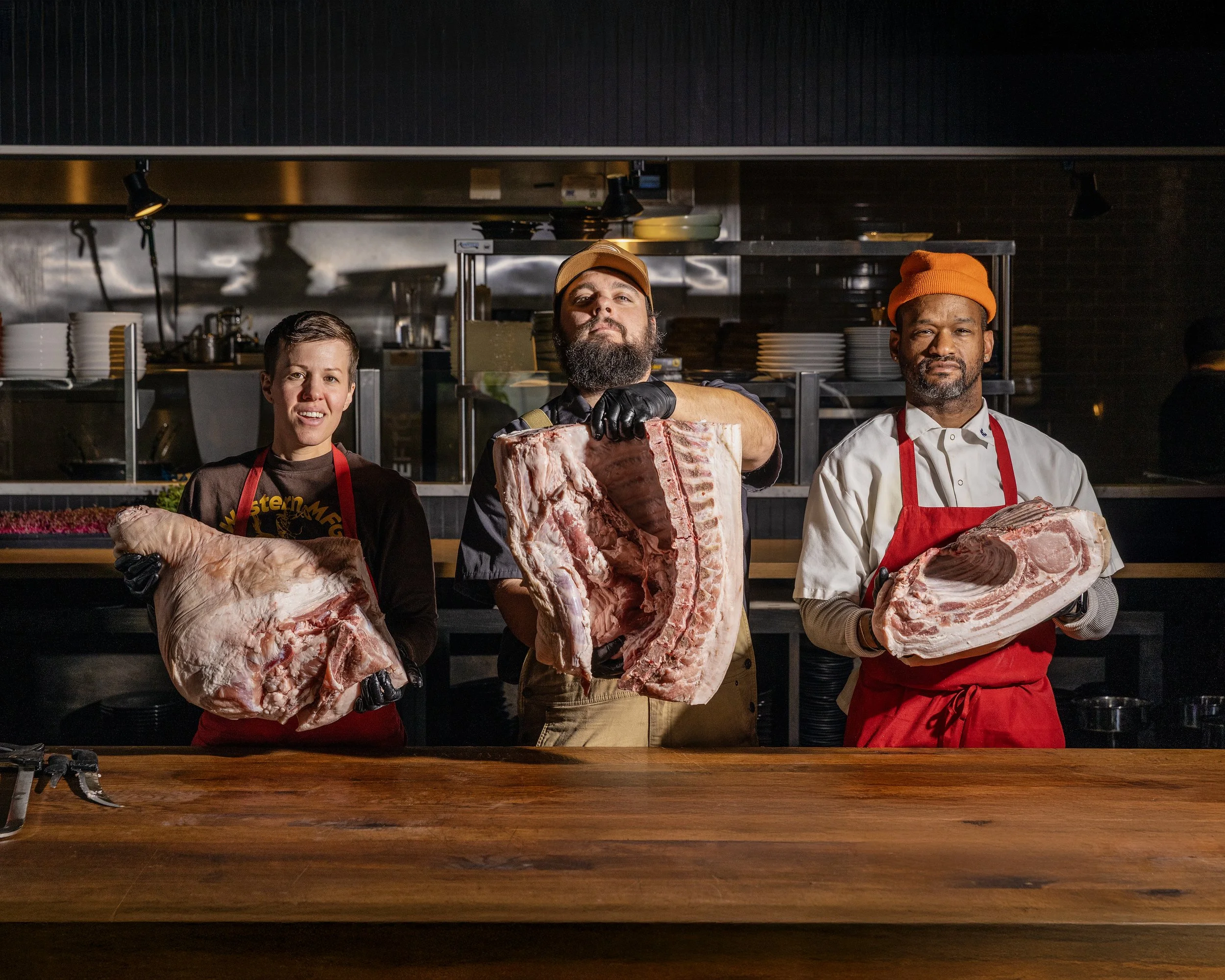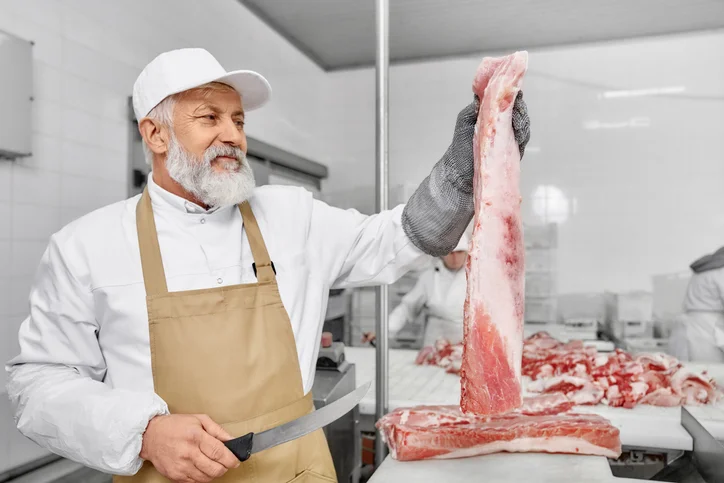All About Meat Markets: Understanding Their Function in Supporting Neighborhood Farmers
Meat markets serve a vital feature in neighborhood economic situations by bridging the void in between consumers and farmers. They use a straight sales channel that enhances the quality and quality of meat products. Past convenience, these markets play a significant role in promoting sustainable farming and supporting the livelihoods of neighborhood farmers. The ramifications of this partnership prolong additionally than one may anticipate, raising questions regarding sourcing techniques and customer choices.
The Importance of Meat Markets in Regional Economies
Although commonly forgotten, meat markets play a crucial function in reinforcing neighborhood economic situations by supporting farmers and creating jobs. These establishments function as important intermediaries, supplying a system for regional producers to offer their items straight to customers. By acquiring in your area sourced meat, customers contribute to the sustainability of nearby farms, ensuring their viability and advertising farming diversity.
Meat markets develop employment possibilities, varying from butchers and sales personnel to management and logistics functions. This work creation promotes the regional economy, promoting a feeling of community as locals involve with their community services.
Additionally, meat markets usually bring in customers that look for top quality, fresh products, which can result in raised foot traffic and sales for surrounding businesses. Generally, the existence of meat markets can substantially enhance regional financial health and wellness, strengthening links in between farming and area wellness while sustaining the resources of farmers.

Linking Farmers and Customers: How Meat Markets Operate
Meat markets work as essential hubs that link local farmers directly with customers, promoting a streamlined supply chain that benefits both parties. By sourcing products from nearby farms, these markets guarantee that customers obtain fresh, high-quality meat while sustaining regional agriculture. The procedure of meat markets entails developing partnerships with farmers, usually permitting them to display their items and share their farming practices.
Subsequently, customers access to a varied selection of meats that mirror local flavors and choices. Openness is an essential aspect of these markets, as customers are commonly given with details about the handling and sourcing of the meat. This straight link promotes trust fund and commitment between farmers and consumers, enhancing neighborhood connections. In addition, meat markets frequently participate in advertising tasks, such as farm-to-table occasions, which better enhance the consumer's experience and understanding of neighborhood farming techniques.
Advertising Sustainable Farming Practices
Promoting sustainable agriculture practices is important for the future of food manufacturing and ecological health and wellness. By focusing on ethical farming techniques, urging biodiversity, and supporting for neighborhood and seasonal sourcing, the agricultural field can substantially decrease its ecological footprint. These methods not only sustain the ecosystem yet additionally foster a much healthier partnership between customers and farmers.

Moral Farming Techniques
An expanding variety of farmers are taking on honest farming methods to improve sustainability and reduce ecological effect. These approaches focus on responsible land administration, lessening using chemical plant foods and pesticides, and accepting natural methods. Techniques such as crop rotation, cover chopping, and agroforestry not just enhance dirt health however likewise promote biodiversity. Furthermore, farmers are progressively prioritizing pet well-being by supplying pasture-based systems and reducing arrest practices. By prioritizing neighborhood resources and area interaction, honest farming fosters a durable agricultural system. This shift not just profits the atmosphere yet likewise reinforces the connection between customers and farmers, encouraging informed acquiring choices that sustain lasting methods. Inevitably, these strategies offer to develop an extra sustainable future for farming.

Biodiversity and Ecosystem Wellness
While numerous farming practices have traditionally focused on yield over environmental equilibrium, an expanding acknowledgment of biodiversity's value has actually arised among farmers and customers alike. Biodiversity enhances community durability, supporting soil wellness, parasite control, and pollination. By integrating diverse crops and livestock, farmers can create a lot more steady communities that minimize dependence on chemical inputs and enhance total performance. Sustainable farming techniques that promote biodiversity not only shield all-natural environments however likewise add to the long-term feasibility of farming. Meat markets play a crucial role in this paradigm shift by promoting for regional products that prioritize eco-friendly health. By selecting to source from farms that embrace biodiversity, consumers can support methods that ensure a sustainable future for farming and the environment.
Regional and seasonal Sourcing
Regional and seasonal sourcing not only boosts the quality of food however additionally supports lasting agriculture practices that benefit both customers and farmers. By focusing on regional meat markets, customers can attach straight with farmers, fostering a feeling of community and trust. This model minimizes the carbon impact associated with long-distance transportation, advertising environmental sustainability. Farmers take advantage of more steady revenues and a trustworthy market for their items, which urges responsible farming techniques. Furthermore, seasonal sourcing urges diverse agricultural methods, allowing farmers to revolve plants and animals, thereby preserving dirt health and biodiversity. In general, this strategy produces an extra resistant food system that straightens with the worths of high quality, sustainability, and area support, enhancing the crucial link between consumers and regional agricultural systems.
The Duty of Openness in Sourcing Meat
What aspects add to customer depend on in meat products? Transparency in sourcing is a crucial component. Customers increasingly look for info about where their meat comes from, including the practices and farms associated with raising the animals. Meat markets that prioritize transparency frequently present clear labeling, detailing the resource and manufacturing approaches made use of. This openness fosters self-confidence and permits consumers to make informed options.
Additionally, clear methods can consist of farm gos to, partnerships with local farmers, and sharing tales about the pets and their atmospheres. As customers come to be a lot more enlightened regarding food sourcing, they tend to like meat products from suppliers that are upcoming with information. This demand for transparency not only reinforces customer trust fund but also urges meat markets to establish ethical connections with neighborhood farmers. Inevitably, transparency sustains a cycle of liability, profiting both customers and producers in the meat market.
Supporting Animal Welfare Through Citizen Sourcing
Supporting pet welfare with regional sourcing joints on the fostering of honest farming practices. By prioritizing openness in sourcing, customers can make informed selections that mirror their values. In addition, area engagement campaigns cultivate a stronger link between farmers and consumers, improving the general dedication to humane therapy of animals.
Moral Farming Practices
While consumers increasingly focus on honest factors to consider in their food choices, local sourcing offers a viable path to supporting animal well-being. Ethical farming techniques stress gentle treatment of pets, guaranteeing they have appropriate area, correct nourishment, and access to outside environments. Neighborhood ranches frequently comply with these standards, as they are extra responsible to their clients and communities. By selecting to source meat locally, customers can support ranches that focus on humane and sustainable practices over industrialized techniques, which usually endanger animal health. This link cultivates frozen turkey delivery a deeper understanding of food manufacturing and urges responsible intake. Eventually, regional sourcing empowers consumers to make educated options that align with their worths pertaining to ethical therapy of pets in the food market.
Openness in Sourcing
Exactly how can transparency in sourcing boost consumer count on neighborhood meat markets? By offering clear details regarding the origins of their products, neighborhood meat markets foster a feeling of liability and integrity. When consumers comprehend the sourcing methods, including the treatment of pets and farming techniques, they are more probable to really feel confident in their purchasing choices. This transparency allows consumers to align their worths with the companies they support, knowing they are contributing to moral animal welfare and lasting methods. Additionally, regional meat markets can showcase partnerships with nearby farms, emphasizing area support and enhancing a positive partnership in between consumers and manufacturers. Inevitably, openness in oxtail delivery sourcing not just develops depend on but additionally encourages informed selections amongst customers.
Neighborhood Engagement Efforts
What function do area interaction efforts play in promoting animal welfare with neighborhood sourcing? These initiatives substantially improve understanding and understanding of moral farming techniques among consumers. By cultivating connections between local farmers and neighborhood members, meat markets can emphasize the importance of humane therapy of pets. Educational workshops and farm excursions enable customers to witness firsthand the problems under which pets are elevated, enhancing the value of regional sourcing. In addition, area events, such as farm-to-table suppers, highlight the partnership in between animal welfare and sustainable practices. With these engagements, customers develop rely on neighborhood meat markets, motivating them to support moral cultivating a culture and sourcing of accountable usage that focuses on pet well-being in the neighborhood.
Wellness Benefits of Deciding On Resident Meat Products
Choosing neighborhood meat products provides numerous wellness advantages that can greatly improve overall health (meat stores near me). One considerable advantage is the decreased time between farm and table, which frequently results in fresher meat with greater nutritional worth. Regional meats often tend to be totally free from damaging preservatives and ingredients frequently located in factory-farmed choices, adding to a cleaner diet plan
Additionally, neighborhood farmers often focus on humane and sustainable practices, causing much healthier animals that produce better-quality meat. Grass-fed and pasture-raised animals, frequently located in neighborhood markets, typically have higher degrees of omega-3 fatty acids and reduced degrees of saturated fats compared to their feedlot counterparts.
Moreover, sustaining local meat items fosters neighborhood health by making sure that consumers have access to secure and sensibly sourced food. By selecting neighborhood, people not only nourish themselves but likewise add to the wellness of their neighborhood and environment.
Making Enlightened Options at the Meat Market
When traversing a meat market, comprehending the key variables that influence top quality and sourcing can empower consumers to make informed choices. Customers must focus on neighborhood products, which typically originate from ranches with lasting methods. Identifying tags such as "grass-fed" or "natural" can also lead choices, as these usually show greater welfare criteria and dietary benefits.
Engaging with the butcher is crucial; experienced staff can supply understandings into the sourcing of their meats and suggest cuts that match numerous cooking approaches. Customers are urged to inquire concerning the ranch's techniques, consisting of animal treatment and feed.
Additionally, checking out the meat's color and structure can expose quality and high quality. Lean cuts need to show up intense and damp, while fatty cuts must have a marbled look. By integrating these methods, consumers can confidently choose meats that straighten with their values and support local farming.
Frequently Asked Questions
What Sorts of Meat Are A Lot Of Typically Offered at Regional Meat Markets?
Regional meat markets commonly provide a range of meats, including beef, pork, lamb, and chicken. These facilities commonly include specialty cuts, sausages, and locally sourced products, providing to diverse more information culinary preferences and consumer demands.
How Can I Discover a Meat Market Near My Area?
To locate a meat market close by, one can utilize on the internet maps, online search engine, or neighborhood directory sites - meat stores near me. Additionally, asking next-door neighbors or buddies for suggestions usually yields important understandings into the finest neighborhood options available
Are There Seasonal Variations in Meat Schedule at Meat Markets?
Seasonal variants in meat availability at meat markets usually happen, affected by variables such as neighborhood farming techniques, pet breeding cycles, and seasonal demand. This can influence the types and quantities of meat provided throughout the year.
Do Meat Markets Deal Special Promotions or Discounts for Mass Purchases?
Meat markets typically provide special promotions and price cuts for bulk acquisitions. This technique urges consumers to acquire larger quantities while making it possible for the markets to handle inventory effectively, profiting both consumers and business monetarily.
Can I Request Specific Cuts of Meat at the marketplace?
Yes, clients can frequently request certain cuts of meat at the market. Numerous butchers want to accommodate special orders, making sure that clients obtain the specific cuts they prefer, tailored to their choices.
By sourcing products from neighboring ranches, these markets guarantee that customers get fresh, premium meat while sustaining regional farming. By prioritizing neighborhood meat markets, customers can link directly with farmers, fostering a sense of community and depend on. Exactly how can transparency in sourcing improve customer depend on in regional meat markets? Local meat markets normally use a range of meats, including beef, pork, chicken, and lamb. Seasonal variations in meat accessibility at meat markets commonly take place, affected by elements such as regional farming techniques, pet reproduction cycles, and seasonal need.